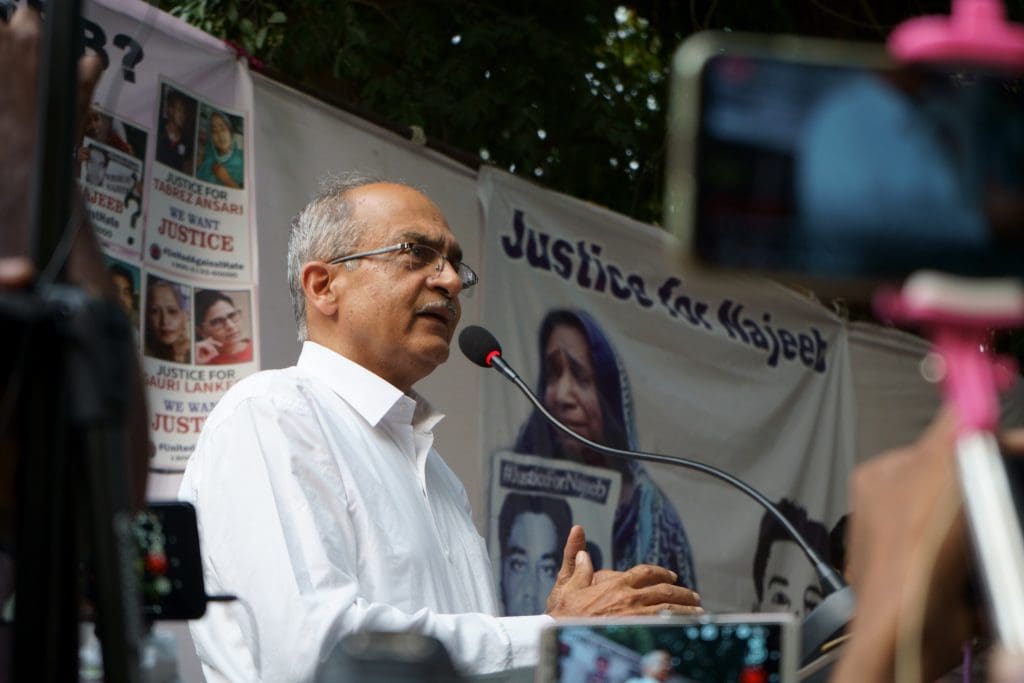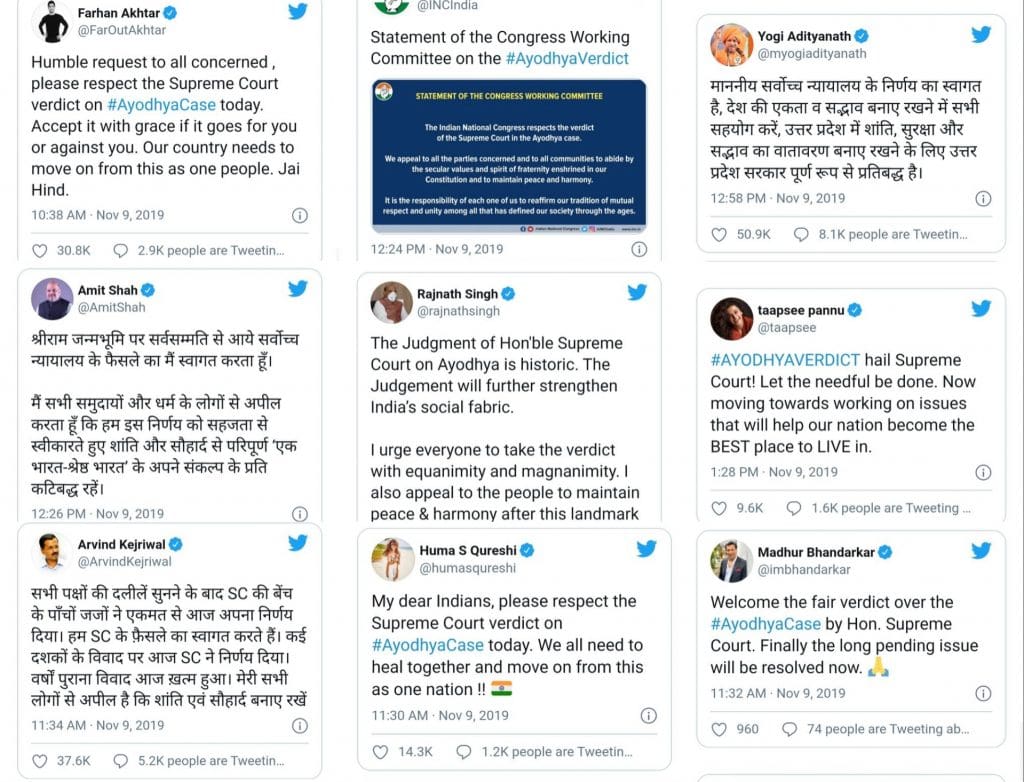
It has been just over a week since the Supreme Court of India had pronounced prominent advocate Prashant Bhushan to be guilty of contempt of Court. The case arose from a series of tweets that Bhushan had posted that criticized the Chief Justice of India, in particular, and the Supreme Court, in general, In the weeks that followed, Bhushan has been the epicentre of a raging debate on freedom of speech, sanctity of the judiciary, and public confidence in the law.
Bhushan believed that the deterioration of the judiciary of the nation could be traced back to the dormant attitude of the Supreme Court and the last four Chief Justices. In apparent retaliation, the Supreme Court took up a suo moto case on 22nd July, and deemed Bhushan to be guilty. Bhushan, in his non-defense, pleaded guilty, and quoted Mahatma Gandhi while standing by his ‘bonafide beliefs’.
However, the fact remains that the response to this defiance from Bhushan was very different than we’ve seen before, especially in the case of minorities. In the wake of the judgement, an onslaught of support has poured over for Bhushan, from all quarters. More than 3,000 members of civil society including former judges, retired bureaucrats, journalists and lawyers offered solidarity to Bhushan and asked the Supreme Court to take his criticism in spirit.
However, what was surprising was the ease and authority with which the civil society could afford to criticize a verdict of the Supreme Court. They were able to defend a person found guilty by its decision, without any media outlet calling them out to be anti-national, without any politician calling them ungrateful or unfaithful to the Indian democratic system. And that is a right that minority communities still find far from them.
The Muzzle of The Minority: The Sanctity Of The Supreme Court
The legal aspects of the Bhushan verdict have been analysed and dissected far too many times in the past week. To repeat them here would be redundant. Yet, the implications of the support for Bhushan far outweigh the legal tenets of a particular court case. The readiness with which members of the opposition, political activists, lawyers and the common man could side against the legal procedures and the judiciary itself, in support of the essence of justice and the ethics of criticism is quite interesting.


However, this same readiness is found missing when the party pleading injustice happens to be related to the minority community. The issue of minority rights versus political jurisprudence is not something new. In November 2019, the Supreme Court had pronounced its landmark verdict on the Ram Janmabhoomi-Babri Masjid title dispute, Asadduddin Owaisi had famously remarked that the Supreme Court may be supreme, but is not infallible. Owaisi reflected the views of millions of Muslims, who felt that that the judgment was a miscarriage of justice. However, unlike Owaisi, most Muslims did not have the political pull, or the precise vocabulary, to be as candid.
From TV anchors to Bollywood celebs to politicians from every spectrum, the advice was consistent: respect the judgement of the Supreme Court, because it is the judgement of the Supreme Court. No place in the forums of Indian democracy allowed minorities to even acknowledge the possibility that judgement might not be correct. The basic right of seeking a review was met with loud disdain.
And that is not the only example. In recent months, the sanctityof the courts of law has been such that to criticize the arbitrary inaction on the 4G services blackout in Kashmir, or the delays in entertain pleas questioning the lockdown there can invite media trials, detentions, or in some cases, the slapping of the National Security Act. The Supreme Court’s refusal to order a stay on the implementation of the Citizenship (Amendment) Act in January this year, the inaction over the arrests of activists, academicians and students, the remarks of the current CJI Bobde about the protestors, or the appointment of his predecessor, Ranjan Gogoi to the Rajya Sabha, would all have become a cause for major criticism, had the members of the minority communities not been continuously subjected to executive oppression and accused of harbouring a contempt of court as soon as they sought to remind the world of the injustice done to them by the judiciary.
A Silver Lining, But Is It A Ray Of Hope?
With the public outrage against the Supreme Court’s decision against Prashant Bhushan, there is a window of redemption for the values of dissent in a democracy. Citizens are willing to acknowledge that even the Supreme Court could have fallacies, and that the political pull of the legislative can creep up to the judiciary fairly easily.
However, this can be a mirage as well. Prashant Bhushan has been a public figure, a righteous person with his own privileges, but he has chosen to speak the truth to power. It remains to be seen if the mainstream would choose to treat this moment as an isolated incident of injustice, or to awaken to the possibility that many others before and after him were not anti-nationals or wild conspiracy theorists when they challenged the supremacy of the Supreme Court.
And if it indeed is the latter, then another quote of Gandhi might serve us well, “Truth never damages a cause that is just.”
Ansab Amir is a student of Aligarh Muslim University and an independent journalist.



